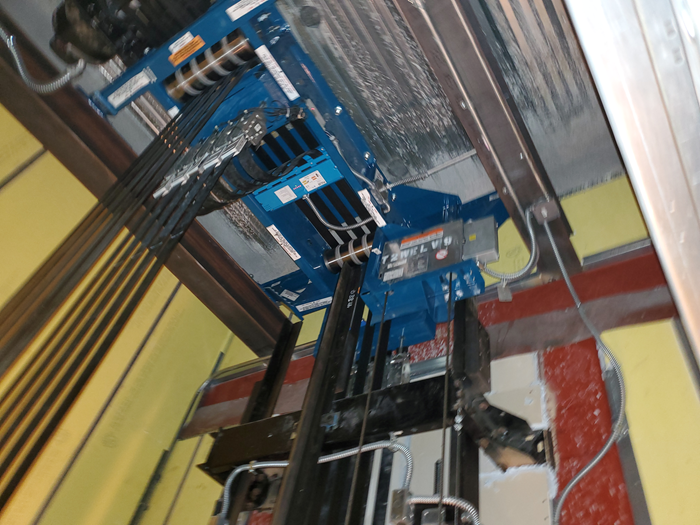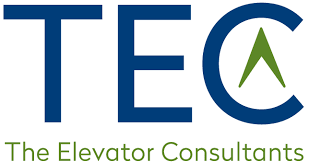When your elevator service provider tells you your building’s elevator is obsolete or that modernization is the only solution, it can be an overwhelming and expensive proposition. Hearing this really leaves stakeholders in an unpleasant situation, especially if they were not planning on am elevator modernization. Modernization projects are capital intensive, often costing hundreds of thousands of dollars depending on the building type, number of floors, and elevator system. But what happens if modernization simply isn’t feasible financially, logistically, or otherwise?
At The Elevator Consultants, we’ve worked with countless building owners, facility managers, and operations teams who are faced with this dilemma. The good news is an elevator modernization isn’t always the only option. In fact, there are several professional strategies that can help you extend the life of your current elevator equipment pending the make and model of the elevator system. These strategies will ensure code compliance, maintain tenant safety, and avoid being overcharged or misled.
This guide explores viable options when modernization isn’t possible, backed by our expertise in elevator consulting, elevator audits, and vertical transportation strategy.
The Pressure to Modernize: What’s Really Behind It?
It’s not uncommon for elevator service providers to advise modernization when parts are difficult to source, the equipment is aged, or code updates are on the horizon. While modernization can be a legitimate solution, it’s not always the only or best one. Some elevator companies may be driven by service revenue targets or may lack the capability or desire to continue servicing legacy systems. It really depends on the current service provider, parts, market and installed system.
From our experience, many clients are told their elevators are “non-serviceable” when, in reality, parts are still available just not through the service provider’s preferred suppliers or internal inventory. In other cases, building owners are presented with blanket modernization proposals with minimal transparency or rationale behind the pricing and scope. This is where expert elevator consulting becomes critical.
Strategic Options If You Cannot Modernize
1. Targeted Repairs and Interim Upgrades
While full elevator modernization upgrades all major elevator components, in many cases you can strategically replace or refurbish only the most critical systems. For example, updating the door operator, or drive unit can potentially improve reliability without a full replacement. It really depends on the current system installed and the issues the elevator is having.
This surgical approach can address the most problematic areas and extends the life of the elevator system. It also enables better long-term budgeting and gives building owners time to prepare for a future modernization as long as the elevator equipment has the ability.
2. Locate Obsolete or Hard-to-Find Elevator Parts
One of the most common reasons cited for an elevator modernization is that “parts are no longer available”, have long lead times or elevator parts are obsolete. While elevator parts availability is a legitimate challenge, it’s not always 100% accurate. As elevator consultants, we have access to global networks and suppliers specializing in obsolete elevator parts. In many cases, components deemed “unavailable” by service providers can still be sourced, refurbished, or replicated.
Our team routinely helps clients procure hard to find elevator parts and validates whether the elevator system is a candidate for parts replacement or refurbishment.
3. Review the Maintenance Agreement
Your current elevator maintenance service contract may not be aligned with your elevator system’s condition or the level of elevator service you require. If your elevator service provider is pushing for an elevator modernization but failing to maintain your existing system properly, a contract review maybe in order.
We help building owners analyze maintenance records, identify gaps, and review service levels that better reflect the actual needs and capabilities of the equipment. This ensures that you’re not paying for a service that isn’t being delivered or being pushed toward modernization out of convenience.
4. Independent Elevator Audit and Condition Assessment
Before taking any action, an elevator audit might need to be completed. This is based on the individual building’s situation. An elevator audit conducted by an independent professional elevator consultant—like The Elevator Consultants—provides a detailed analysis of the elevator’s condition, performance, life cycle and code compliance. We identify what’s truly needed, what’s optional, and what might be exaggerated.
This elevator audit serves as a foundation to make data driven decisions rather than reacting to high-pressure sales tactics or unclear elevator service provider reports. The elevator audit is sometimes called an elevator assessment, an elevator survey or an elevator review yet all will give you the information needed to make an informed decision. An elevator consulting firm will let you know if an onsite assessment is needed.
5. Code Compliance Without Full Modernization
In jurisdictions where new elevator safety codes have been enacted such as door lock monitoring it may be possible to meet these standards without overhauling the entire system. Code upgrades can often be implemented as standalone improvements.
We help our clients separate what’s required from what’s optional and develop a compliance plan that fits their budget and schedule. The building will be given real options based on the installed equipment.
When to Start Planning for Future Elevator Modernization
Even if modernization isn’t feasible today, it’s wise to start preparing for it strategically. That means:
· Documenting equipment performance and failure trends
· Understanding funding options including reserve studies or capital improvement plans
· Mapping out potential modernization phases for future years
The Elevator Consultants can help you develop a modernization roadmap with defined triggers and timelines, so when the time comes, you’re ready with competitive bids, trusted vendors, and a clear scope of work.
Why Independent Elevator Consulting Makes the Difference
Elevator systems are technical, heavily regulated, and expensive to repair or replace. Without an independent elevator expert, building owners are at a disadvantage—often left to trust the same elevator service providers who stand to profit from their recommendations. At The Elevator Consultants, we act solely in the interest of our clients, providing transparency, technical expertise, and unbiased guidance.
Whether you’re managing a hospital, hotel, commercial office building, or multi-unit residential property, you do have options—even when modernization feels out of reach. The key is to work with an expert who can separate fact from fiction, evaluate the true condition of your equipment, and map out a viable path forward that prioritizes safety, compliance, and cost control.
If your building has obsolete elevators, and you’ve been told that modernization is your only option pause and contact The Elevator Consultants first. We’ll help you assess, strategize, and act with clarity. Let’s turn uncertainty into a plan.
FAQ
1. Is it safe to continue operating an elevator that is considered obsolete?
Yes, if properly maintained and regularly inspected, an obsolete elevator can still be operated safely. Obsolescence often refers to parts availability, not immediate danger or code failure.
2. What should I do if my elevator service provider says parts are no longer available?
Request specific documentation and information. Then, engage an elevator consultant to verify availability. In many cases, independent sourcing options may exist, or refurbished and aftermarket parts can be used, it really depends on the equipment and the buildings situation.
3. Can I delay modernization and still remain code compliant?
Yes, depending on your situation, jurisdiction and equipment type. Certain code mandates can be met through targeted upgrades without a full modernization. Consulting with an elevator expert ensures you’re compliant without overextending your budget.
4. How much can targeted upgrades cost compared to full modernization?
Targeted upgrades can cost a fraction of a full modernization. While every system is unique, partial upgrades addressing critical issues can range from 10% to 40% of the total modernization cost saving tens or even hundreds of thousands of dollars. It really depends on the buildings equipment and situation.
5. Why should I hire an independent elevator consultant instead of relying on my service provider?
Independent elevator consultants have no financial interest in parts sales or upgrades. Their role is to protect your investment by providing unbiased evaluations, ensuring compliance, and uncovering the most cost-effective options something most service providers simply aren’t incentivized to do.
